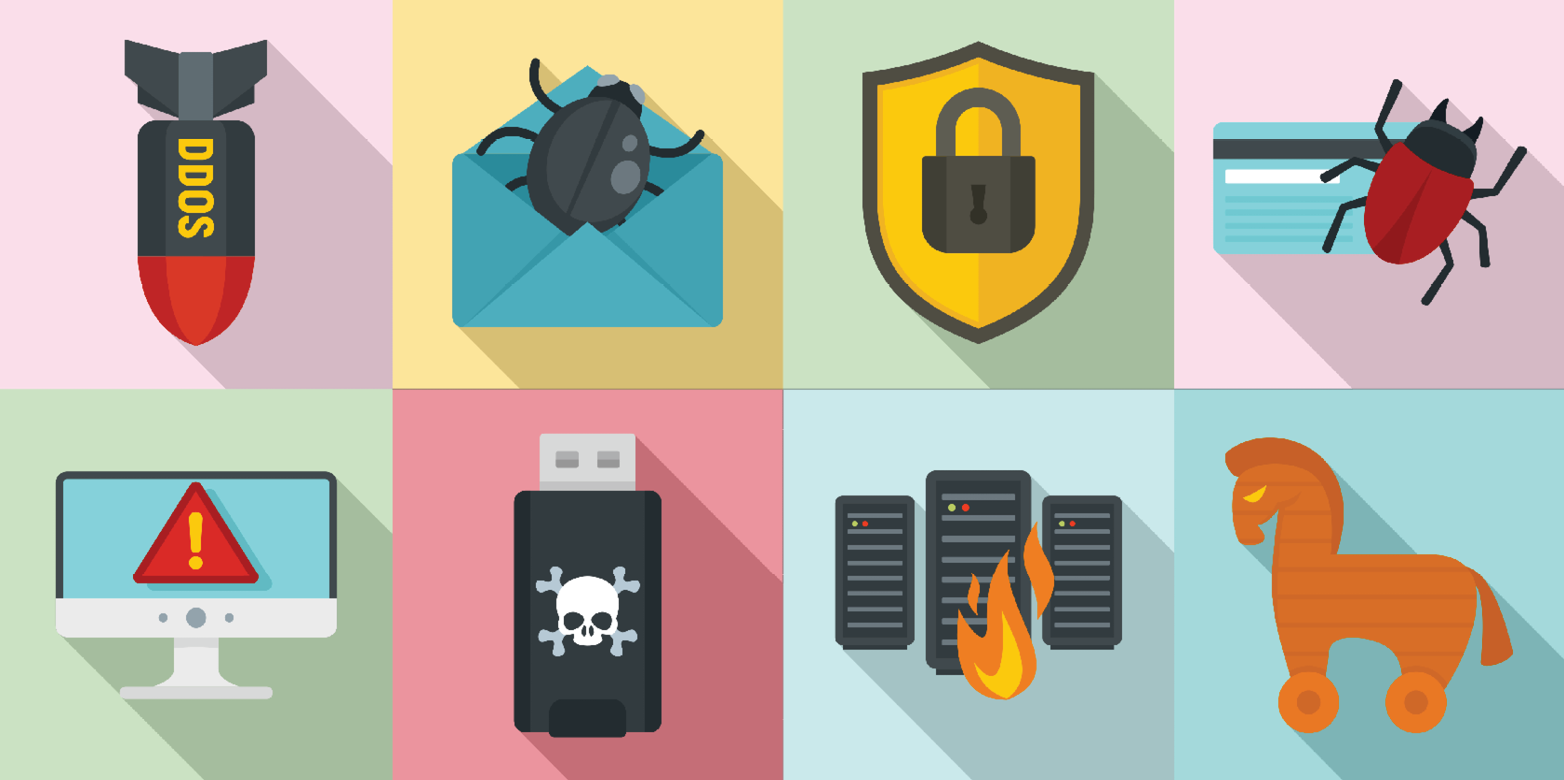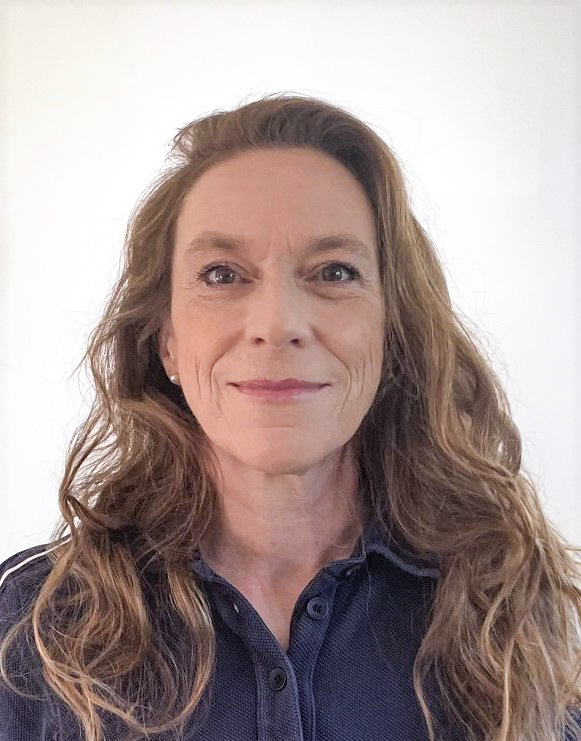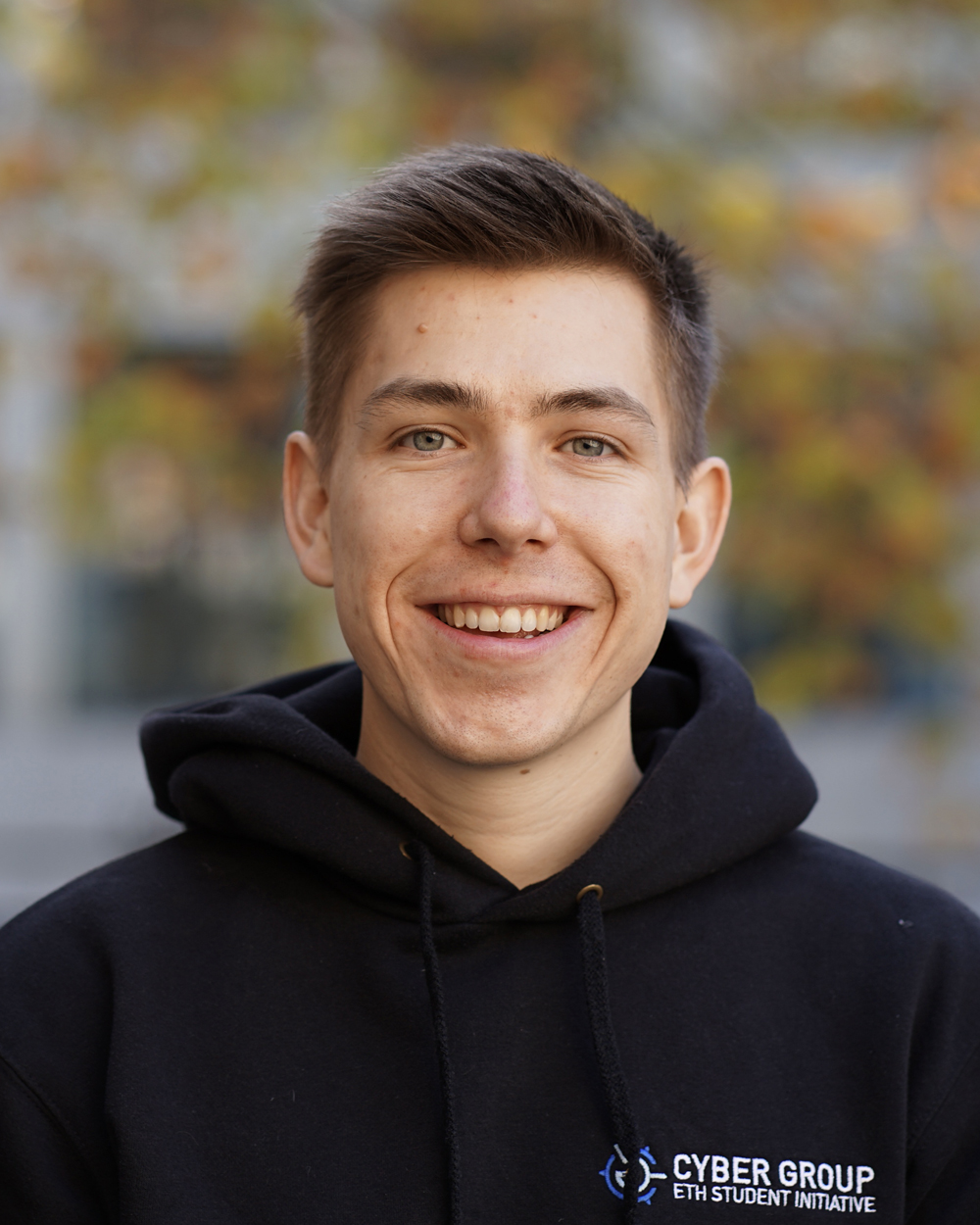“Cyber security means freedom”
Founded by students, the ETH organisation Cyber Group ETH Student Initiative is dedicated to cyber security. Its co-founder and former president, Karin Holzhauser, and current president Christian Knabenhans explain where Cyber Group came from and where it’s headed.

Karin Holzhauser, what is Cyber Group ETH Student Initiative?
Karin Holzhauser (KH): Cyber Group is a student organisation dedicated to fostering a passion for cyber security among ETH students. We have three guiding principles. Firstly, we are led exclusively by students and for students. Secondly, we encourage students from all departments of ETH Zurich to take an interest in cyber security. Cyber security is not just a computer science topic, it concerns all areas of our lives and is just as relevant for students of engineering, pharmacy, policy and many more. Thirdly, we want to create a forum in which students can connect with cyber security experts outside of ETH. This allows them to build confidence and to practice critical skills like leadership and communication that don’t always get enough attention in the curriculum.
Why did you decide to found Cyber Group in 2019?
KH: There were three initiators: Jelena Mihajlovic was studying for her Master’s in Comparative and International Studies (MACIS) while Lara Lazier and I were doing our computer science Bachelor’s. Together with Alice Brazzola from the University of St. Gallen, we had joined the Cyber 9/12 Strategy Challenge in Geneva. This challenge involved student teams responding to a fictional cyberattack on critical European infrastructure, factoring in both technical and policy aspects. From the six ETH teams that entered, we were the only ones to win one of the five awards. We realised that it wasn’t technical competence that was lacking, but the skills to present this competence and convince an expert panel. That is when we decided to make sure that future ETH teams would be prepared accordingly.
You were spectacularly successful: the very next year, the five ETH teams trained by Cyber Group took home the top five places and all of the special awards. What were the biggest challenges in getting Cyber Group started?
KH: Our biggest challenge was us doubting ourselves. From the start, we wanted to invite high-profile speakers to our events. That was intimidating, especially since we didn’t have any proof of concept yet, just a bold idea. But we believed in our vision, and our belief and excitement helped us convince others. We are very grateful for the support we received from our first contacts within ETH: the Rector, Professor Sarah Springman; Professor Kenny Paterson from the Applied Cryptography Group; and Dr. Myriam Dunn Cavelty from the Center for Security Studies (CSS). They believed in us from the start. There was a particularly energising moment when our Rector at the time, Professor Sarah Springman, made her way through the maze of ETH buildings between two events just to come to our launch event – that really signalled to us how much she wanted us students to be engaged and to succeed.
Christian Knabenhans, you were one of that successful first crop of students to train for the 9/12 Challenge with Cyber Group. What was that like?
Christian Knabenhans (CK): I was part of Team PromETHeus, and we ended up winning first place and the Most Creative Policy Award. The training was very intense. We learned a lot about technology and policy, but also about communication, teamwork and time management. We had pages and pages of notes. The competition itself was equally intense. During the last phase, we only had ten minutes to react to a changing scenario. We had to work together, improvise and then present our results to a panel of very important judges. It was a lot of fun and I’m glad I did it!
Karin, how did training the teams make you feel?
KH: It is gratifying to watch the groups grow into teams during training. We start the training with 20 or 30 people who don’t know each other and are very quiet. As we progress, the energy of the group completely changes and the students become much more engaged.
So the teams do not know each other before the competition? Was this the case for Team PromETHeus?
CK: Yes, we were all strangers: three computer science students and one officer from the military academy at ETH Zurich.
KH: Being grouped with strangers reflects the reality our students will encounter later in life. We want them to learn as much as possible so that the training itself is the biggest win, regardless of the outcome of the competition. They come out of their comfort zone, practice teamwork in a stressful situation and train with experts from the Swiss government and industry. If at the end of all this, they get a prize, great! But even if they don’t, the knowledge and experience they have gained is extremely valuable.
Karin, why did you step down as Cyber Group’s president in 2021?
KH: From the outset, I always wanted this organisation to be run by students. Cyber Group is not a permanent commitment, but rather a chance to spread your wings and be creative while still focusing on your studies. That said, we have taken on an advisory role for the new board and we also founded the sister organisation ETH Cyber Group alumni, which all our speakers, experts and graduates are invited to join. We want it to be a nucleus of knowledge sharing and lifelong learning between ETH, academia, industry and public institutions.
Christian, what do you do as president?
CK: I coordinate Cyber Group’s three main activities. The first one is the Open Ports, a series of short interactive events in which speakers from industry, academia or public institutions discuss their work with a group of about 30 students. The second one is the Meet & Greet, which is a yearly get-together to celebrate all the experts who have supported us throughout the year. We aim to have equal numbers of students and experts at the Meet & Greet to allow all students to meet experts. The event starts off with a few keynotes followed by interactive games designed to connect people. Both the Open Ports and the Meet & Greet are open to any ETH student. And our third pillar is of course the training for the 9/12 Strategy Challenge. We give students an intensive training programme for about two months, with many experts from academia, industry and public institutions.
That sounds like a lot of work. How do you balance it with your studies?
CK: It is a lot of work, but it also gives me energy. The opportunity to learn so many things that aren’t taught in lectures really motivates me.
Karin, what made this effort worth it for you?
KH: Organising the events and training the teams takes a lot of time and effort. And at the end of the day, you will not be the one winning a prize for it. But seeing the students work together and become teams makes it all worth it. It is also very gratifying to feel the support and engagement from our experts once they discover our passion and curiosity. It all adds up to a worthwhile effort to create a nucleus of cybersecurity experts anchored at ETH – I enjoyed giving my energy to this cause.
What was your proudest achievement during your time as president?
KH: It is difficult to name just one. In those two years, more than 300 students across many ETH departments participated in our events. It made me especially proud when some of them approached us afterwards and said we had opened their eyes about cyber security. I’m also proud of the first Meet & Greet we organised. It had to be moved into a virtual space because of the pandemic and both our team and our participants managed to make it a truly interactive and positive experience. And finally, on a personal note, I’m proud that we created something that will continue and hopefully define student life at ETH for a long time to come.
What are your goals for the future of Cyber Group, Christian?
CK: We will continue updating our events in order to keep up with the trends and developments in cyber security. We are also thinking of new venues to explore. So far, we have been focusing on cyber security in Switzerland, Europe and the US. But there are also unique cyber challenges facing Asia, South America and Africa, so we are looking to expand in this direction. And of course we want to continue growing within ETH, involving even more departments and students.
Why is cyber security important to both of you personally?
CK: Digitalisation continues to ramp up. Almost everything we do happens online in one form or another: your banking transactions, identity proofs, social and professional life. It is becoming ever more important that we have both the technical means and the policies to protect all this information.
KH: I wholeheartedly agree. To me, cyber security means freedom. If a company suffers from a DDoS attack, its freedom to interact with its customers is limited. If your personal account gets hacked, your freedom of expressing yourself suffers. And for a nation, cyber security means the freedom to make its own political decisions and to create an environment without outside interference. So I encourage everyone to think of cyber security as something that frees and enables you instead of restricting you.
About Cyber Group
As an ETH student association, Cyber Group aims to bring the topic of cyber security closer to students from all study programmes, and create a network between students, academia, industry and the public sector. Its primary goal is to support student groups participating in cyber crisis simulation competitions, by providing them with appropriate training, funding and overall support during the competition.
Additionally, Cyber Group organises a variety of “Open Port” events throughout the year, during which renowned cyber security experts come to ETH to share the current state of their field with students. Cyber Group also organises an annual “Meet & Greet”, a networking event for cyber enthusiasts from all study programmes and areas to socialise and enjoy an evening of talks.
Learn more about Cyber Group at cybergroup.ethz.ch


